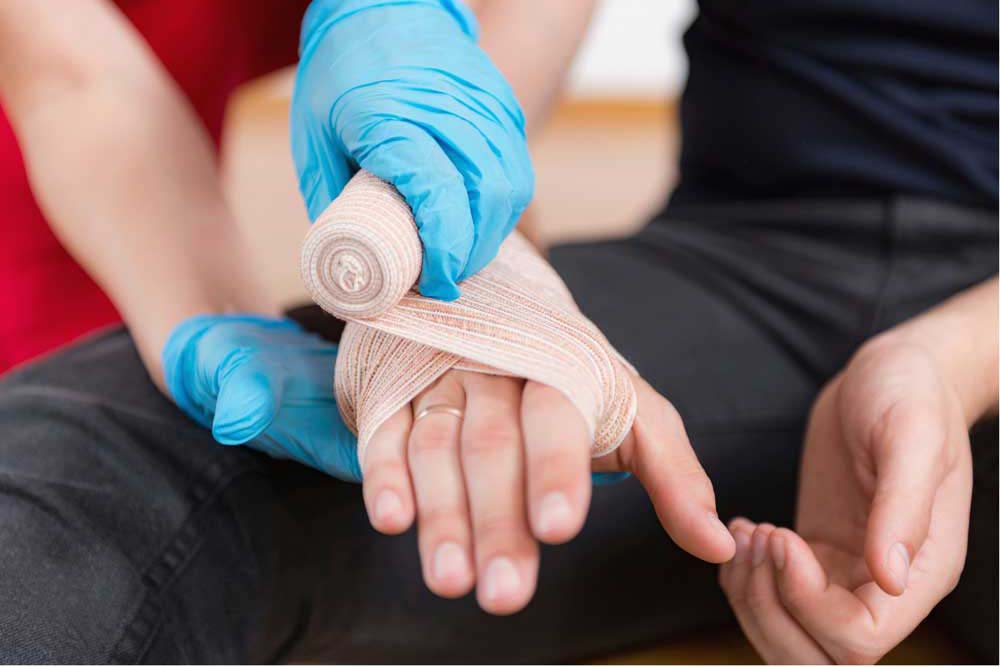The Basic First Aid (BFA) | CPR AED training program, conducted by Capital Ambulance in the UAE, serves as a crucial initiative for individuals aiming to acquire or enhance their emergency response skills. As an authorized Training Center for the American Health and Safety Institute (ASHI-HSI), this program caters to a diverse audience, including, but is not limited to:
1. Healthcare Professionals: Doctors, nurses, and other healthcare providers can benefit from this program to refresh and update their CPR and first aid skills. The training aligns with the latest resuscitation science and treatment recommendations, ensuring that healthcare professionals stay current with best practices and their skills are up-to-date.
2. First Responders: Emergency medical technicians (EMTs), paramedics, and other first responders can enroll to reinforce their existing training and stay abreast of the most recent guidelines. This program offers valuable scenario-based exercises that simulate real-world emergencies, contributing to improved readiness in the field.
3. Workplace Safety Teams: Employees responsible for workplace safety and emergency response teams can greatly benefit from this training. Having individuals with First Aid | CPR AED certification in the workplace can contribute to a safer environment and ensure prompt response to emergencies.
4. Educators: Teachers, school staff, and administrators can enroll in this program to acquire the skills needed to respond to emergencies in an educational setting. This is particularly crucial when dealing with children, as the training covers techniques applicable to adults, children, and infants.
5. Community Members: Any individual in the community interested in acquiring life-saving skills can enroll. Whether you are a parent, caregiver, or concerned citizen, having the ability to administer first aid and perform CPR with an AED can make a significant difference in emergency situations at home or in public spaces.
Key Components of the Training:
1. Emergency Response: Participants learn effective strategies for immediate and organized responses to a variety of emergency situations.
2. Scene Safety and Assessment: The importance of evaluating and ensuring safety in emergency situations is emphasized to create an environment conducive to providing aid.
3. ABCs (Airway, Breathing, Circulation): Fundamental principles of assessing and maintaining vital functions are covered, forming the basis of effective emergency care.
4. Bleeding Control, Wound Care, Burns, Fractures: Techniques for managing common injuries are addressed comprehensively.
5. Choking, Shock, Seizures, Allergic Reactions, Poisoning: Participants gain proficiency in responding to a range of medical emergencies.
6. Heat and Cold Emergencies, Stroke, Heart Attack, Diabetes Emergencies: Recognition and appropriate responses to specific health crises are covered.
7. CPR (Cardiopulmonary Resuscitation) and AED (Automated External Defibrillator): Participants are trained in life-saving techniques, including high-quality CPR, hands-only CPR, and proper AED operation.
8. Chain of Survival: The importance of a structured approach to emergency response, including defibrillation, is emphasized.
9. Recovery Position: Participants learn the proper positioning to ensure the safety and well-being of individuals after initial care.
Why Enroll:
There are many reasons to register in this important program, such as:
1. Life-Saving Skills: The training equips participants with the knowledge and skills necessary to respond effectively to a variety of emergency situations, potentially saving lives in critical moments.
2. Professional Development: For healthcare professionals and first responders, the certification obtained from this program enhances professional credentials and demonstrates a commitment to staying current with industry standards.
3. Workplace Safety: Employers can ensure a safer work environment by enrolling employees in this program. Having certified individuals in the workplace contributes to a prompt and effective response to emergencies.
4. Community Impact: Enrolling in this program allows individuals to contribute positively to their communities by being prepared to assist in emergencies, whether at home, in the workplace, or in public spaces.
5. Compliance with Guidelines: The training program adheres to the latest international and local guidelines, providing participants with the confidence that they are learning and practicing techniques in line with the most recent evidence-based recommendations.
By enrolling in the First Aid | CPR AED training program with Capital Ambulance, individuals can gain the confidence and competence needed to respond effectively in emergency situations, making a significant impact on the safety and well-being of those around them.
The certificate is recognized and accepted by OSHAD, MOH, and DOH-Abu Dhabi, as well as various government authorities both within the UAE and internationally.
If you're interested in First Aid training in the UAE, don't hesitate to reach out for more details about our courses, pricing, schedules, and additional features. Our team is available to promptly address any inquiries you may have. Feel free to CALL NOW to speak with one of our representatives and get the information you need.






